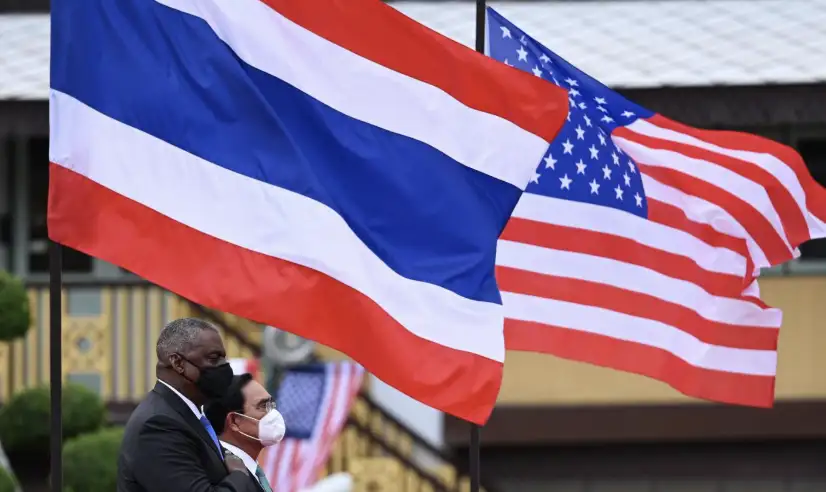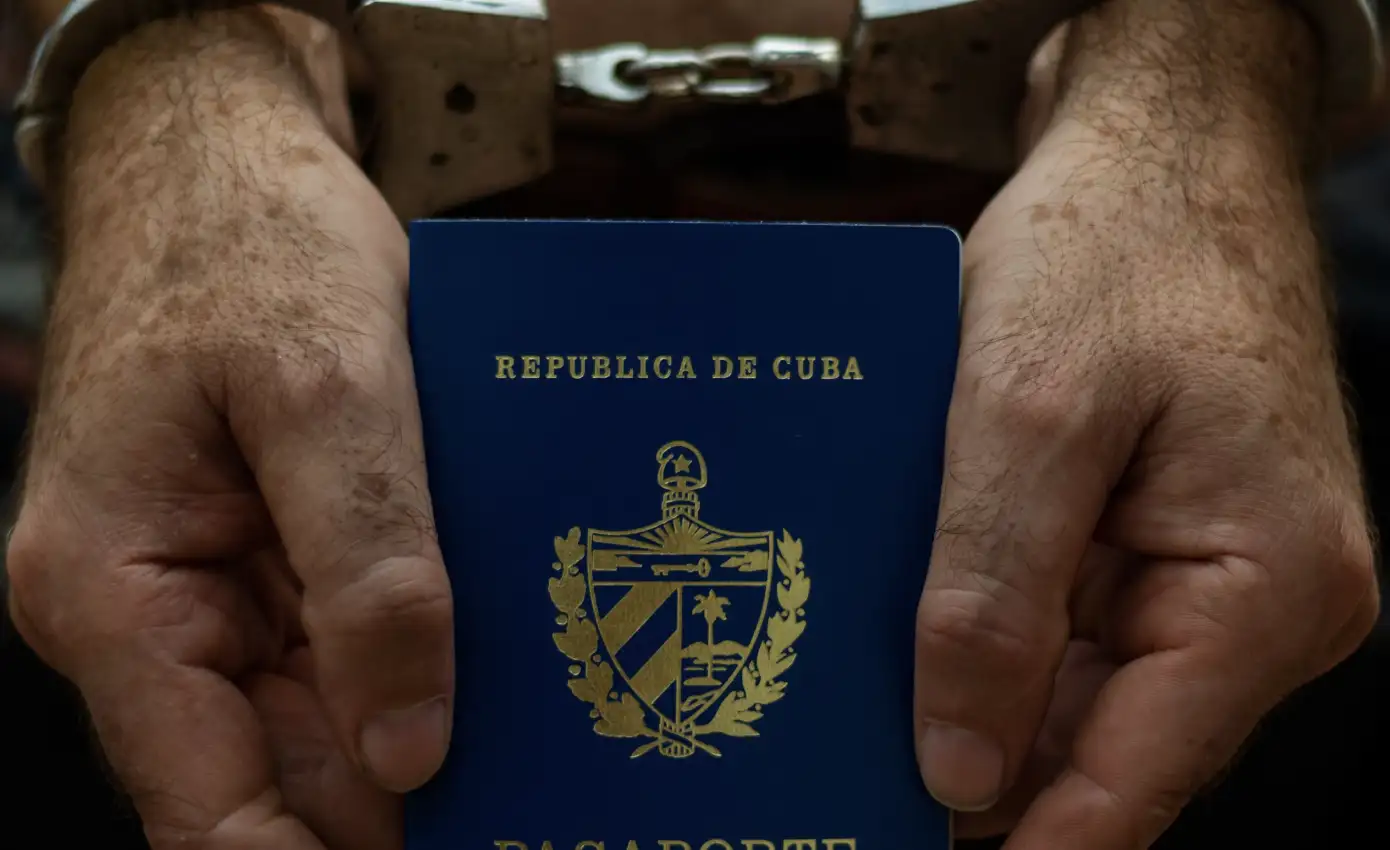Thailand, a popular destination for tourists, expatriates, and business travelers, is also a focal point for international legal matters, including extradition. For individuals facing legal issues in the United States, a common question arises: Does Thailand extradite to the US? The answer is yes, Thailand does extradite to the United States under specific conditions, governed by a bilateral extradition treaty and Thai domestic law. In this 1500-word article, we explore the legal framework, processes, and key considerations surrounding extradition from Thailand to the US, providing a detailed guide for those seeking clarity on this complex topic.
Understanding Extradition: What Does It Mean?
Extradition is the legal process by which one country surrenders an individual to another country to face prosecution or serve a sentence for a crime. In the context of Thailand and the United States, extradition is facilitated by a formal treaty and regulated by Thailand’s Extradition Act B.E. 2551 (2008). This process ensures that fugitives cannot evade justice by fleeing across international borders, while also respecting the legal and human rights frameworks of both nations.
Thailand’s strategic location in Southeast Asia and its status as a hub for international travel make it a significant player in extradition cases. The country has established extradition treaties with several nations, including the United States, to promote mutual legal assistance and combat transnational crime. However, the process is not automatic and involves multiple legal, diplomatic, and judicial steps.
The US-Thailand Extradition Treaty
The foundation for extradition between Thailand and the United States is the Treaty Between the Government of the United States of America and the Government of the Kingdom of Thailand Relating to Extradition, signed on December 14, 1983, and entered into force on May 17, 1991. This treaty outlines the conditions under which extradition can occur, ensuring compliance with both countries’ legal systems.

The treaty covers a wide range of offenses, including drug trafficking, financial fraud, cybercrime, violent crimes, and conspiracies to commit these acts. It explicitly states that conspiracies and attempts to commit extraditable offenses are also grounds for extradition, making it a robust tool for prosecuting complex criminal cases, such as narcotics conspiracies.
Key Legal Principles Governing Extradition
Thailand’s extradition process is governed by the Extradition Act B.E. 2551 (2008), which replaced the earlier 1929 Act, and the specific provisions of the US-Thailand extradition treaty. Several key principles guide whether an individual can be extradited from Thailand to the US:
Dual Criminality Principle
The offense for which extradition is requested must be a crime in both Thailand and the United States, punishable by at least one year of imprisonment or a more severe penalty, such as death. This “double criminality” rule ensures that the alleged act is recognized as a serious offense in both jurisdictions. For example, crimes like murder, fraud, or drug trafficking meet this criterion, while minor misdemeanors with penalties of less than six months are typically not extraditable.
Extraditable Offenses
The US-Thailand treaty specifies that extradition applies to offenses listed in the treaty or those meeting the minimum penalty requirement. Inchoate offenses, such as incitement, conspiracy, or attempts, are also extraditable if they align with the dual criminality principle.
Non-Extradition of Thai Nationals
Thailand generally does not extradite its own citizens unless specific conditions are met, such as consent by the individual, provisions in the treaty allowing it, or a reciprocal agreement with the requesting state. Instead, Thai nationals accused of crimes abroad may be prosecuted in Thailand under Thai law. For US citizens or other foreigners in Thailand, however, extradition to the US is possible if the legal criteria are satisfied.
Political and Military Offenses
Thailand refuses extradition for offenses deemed strictly political or military in nature. However, certain acts, such as murder or bodily harm against heads of state or government officials, are explicitly excluded from being considered political offenses, making them extraditable.
Human Rights Considerations
Thailand may deny extradition if there is a substantial risk that the individual will face torture, cruel treatment, or an unfair trial in the requesting country. The Thai courts carefully assess the requesting country’s judicial system and detention conditions to ensure compliance with international human rights standards.
Statute of Limitations and Prior Prosecution
Extradition will not be granted if the statute of limitations for the offense has expired under Thai law, if the individual has already been prosecuted or punished for the same crime, or if they have been granted amnesty in the requesting state.
The Extradition Process in Thailand
The extradition process from Thailand to the US is a multi-step procedure involving diplomatic, legal, and judicial coordination. Below is an overview of the key stages:
Submission of the Extradition Request
The US government initiates the process by submitting a formal extradition request through diplomatic channels, typically via the US Embassy in Bangkok to Thailand’s Ministry of Foreign Affairs. The request must include:
- Details of the suspect’s identity, nationality, and location.
- A statement of facts outlining the alleged offense.
- Legal basis for the criminal proceedings, including relevant laws and penalties.
- Evidence proving the suspect’s identity and involvement in the crime.
Review by Thai Authorities
Thailand’s Office of the Attorney General (OAG) reviews the request to ensure it complies with the Extradition Act and the US-Thailand treaty. The Ministry of Foreign Affairs may also assess diplomatic implications. If the request is deemed valid, it is forwarded to the Thai Criminal Court, which has jurisdiction over extradition cases.
Arrest and Detention
If a warrant has been issued in the US, Thai authorities may arrest the suspect based on the extradition request. The individual is detained pending judicial proceedings, with investigative detention periods reauthorized every 12 days, up to a maximum of 84 days. Bail is possible for most offenses, but it typically requires cash or assets located in Thailand as surety.
Judicial Review
The Thai Criminal Court examines the extradition request to determine whether it meets legal criteria. The court assesses:
- Whether the offense is extraditable under Thai law and the treaty.
- Whether sufficient evidence supports the request.
- Whether the case involves political or military offenses.
- Whether human rights concerns, such as the risk of torture, apply.
Unlike criminal trials in Thailand, extradition cases have only two levels of court: the Court of First Instance (e.g., Bangkok Criminal Court) and the Court of Appeals. The Appeals Court’s ruling is final, with rare exceptions for retrials based on new evidence.
Decision and Execution
If the court approves extradition, the Thai government makes the final decision to surrender the individual. The suspect is then transferred to US authorities for prosecution or to serve a sentence. If extradition is denied, the individual may be released, unless they face charges in Thailand.
Challenges and Defenses Against Extradition
Extradition cases are complex, and individuals facing extradition to the US can employ legal defenses to challenge the request. Common defenses include:
- Lack of Dual Criminality: Arguing that the offense is not a crime in Thailand or does not meet the minimum penalty requirement.
- Political Offense: Claiming the offense is political in nature, though this is narrowly defined.
- Human Rights Violations: Demonstrating a risk of torture, unfair trial, or inhumane treatment in the US.
- Insufficient Evidence: Contesting the evidence provided by the US as inadequate or unreliable.
- Procedural Irregularities: Highlighting violations of Thai law or the treaty during the extradition process.
Engaging an experienced Thai lawyer specializing in extradition law is critical. Firms like Juslaws & Consult or Thailand Bail have successfully opposed extradition requests by leveraging these defenses and navigating the intricacies of Thai and international law.
Real-World Examples
Extradition from Thailand to the US has occurred in high-profile cases, particularly involving serious crimes. For instance, in 2023, an American accused of child sex tourism was extradited from Thailand to the US after being detained in an immigration detention center. Such cases highlight Thailand’s cooperation with the US in combating transnational crime.
However, not all requests succeed. In 2008-2009, a legal team in Thailand won a high-profile extradition case against the US, demonstrating that a well-prepared defense can prevent extradition under certain circumstances.
Implications for US Citizens in Thailand
For US citizens living or traveling in Thailand, understanding extradition is crucial. A pending US arrest warrant or criminal conviction can lead to complications, such as detention upon entering the US or difficulties obtaining a new US passport from the US Embassy in Bangkok. As the US-Thailand extradition treaty allows for the detention of suspects in Thailand, remaining in the country does not guarantee immunity from US authorities.
US citizens with outstanding legal issues should consult a licensed American attorney or a Thai law firm with expertise in extradition, such as Integrity Legal, to resolve matters proactively. Delaying action can exacerbate legal consequences and limit options for defense.
Thailand’s Broader Extradition Framework
In addition to the US, Thailand has extradition treaties with countries like Australia, Canada, China, South Korea, and the United Kingdom, among others. Even without a treaty, Thailand may consider extradition requests based on reciprocity or multilateral agreements, such as the United Nations Convention Against Transnational Organized Crime (UNTOC). This flexibility underscores Thailand’s commitment to international legal cooperation.
However, Thailand’s adherence to human rights principles, as seen in a 2024 case where experts urged reconsideration of extradition to Vietnam due to torture risks, shows that the country balances legal obligations with ethical considerations.
Tips for Navigating Legal Issues in Thailand
If you or someone you know faces potential extradition from Thailand to the US, consider these steps:
- Hire a Qualified Lawyer: Engage a Thai law firm with extradition expertise, such as Siam Legal or Chaninat & Leeds, to build a robust defense.
- Understand Your Rights: Familiarize yourself with Thai legal processes and consular assistance available through the US Embassy.
- Act Promptly: Address US legal issues before they escalate to extradition requests, as proactive resolution can prevent detention.
- Check Immigration Status: Ensure compliance with Thai visa regulations to avoid additional legal complications.
Conclusion
Thailand does extradite to the United States under the 1983 bilateral treaty and the Extradition Act B.E. 2551 (2008), provided the offense meets the dual criminality principle, is not political or military in nature, and complies with human rights standards. The process involves rigorous judicial scrutiny, offering opportunities for legal defenses but also reflecting Thailand’s commitment to international law enforcement cooperation. For US citizens in Thailand, staying informed about extradition risks and seeking expert legal counsel is essential to navigate potential challenges. Whether you’re a traveler, expatriate, or legal professional, understanding the nuances of Thailand’s extradition process ensures better preparedness in 2025

